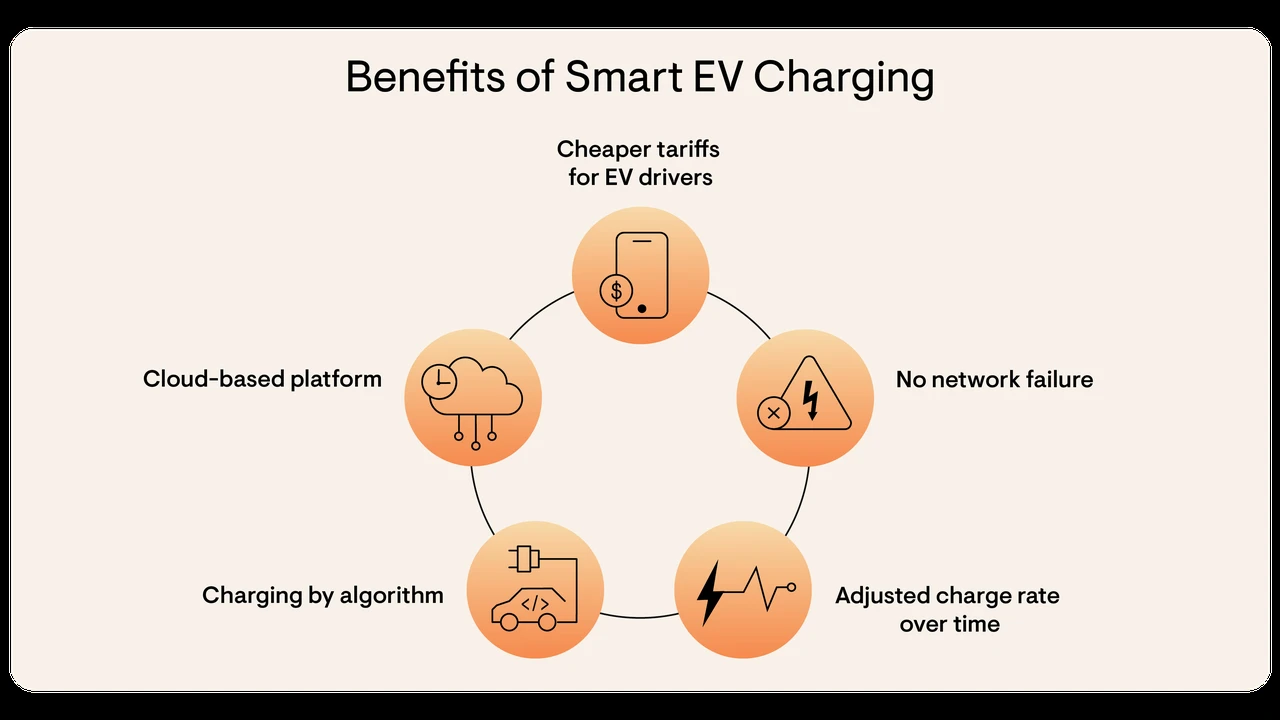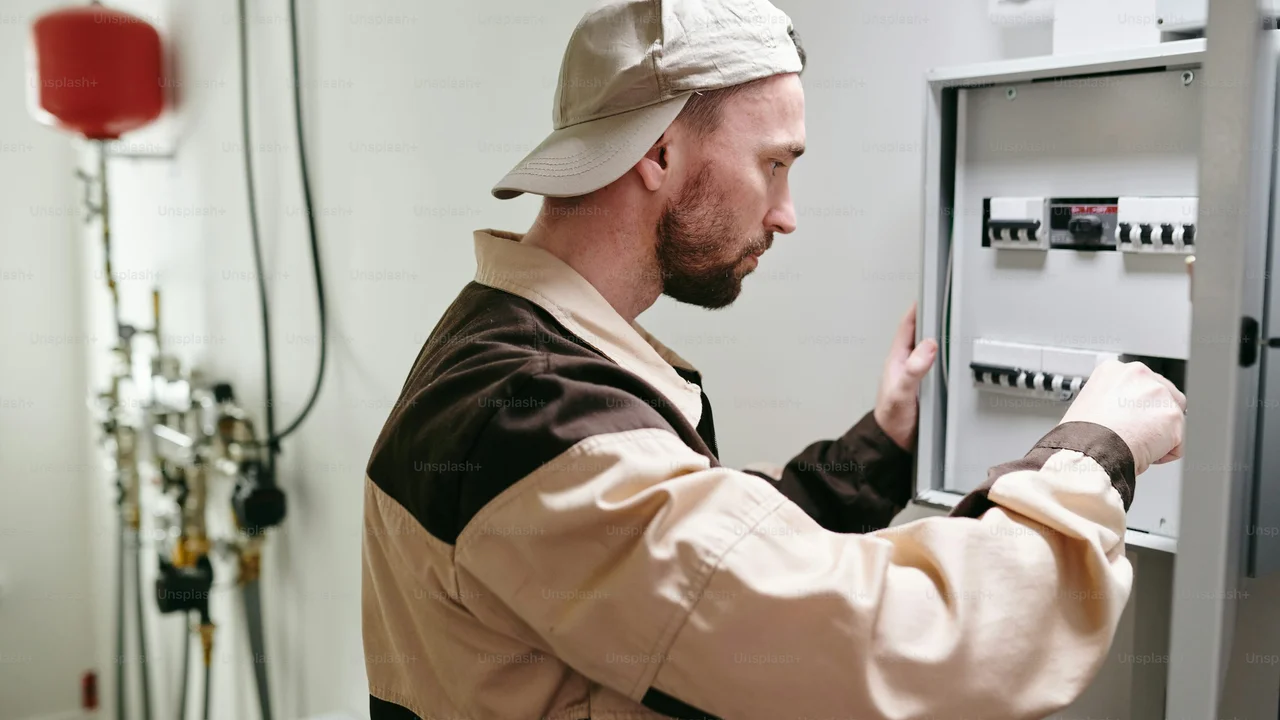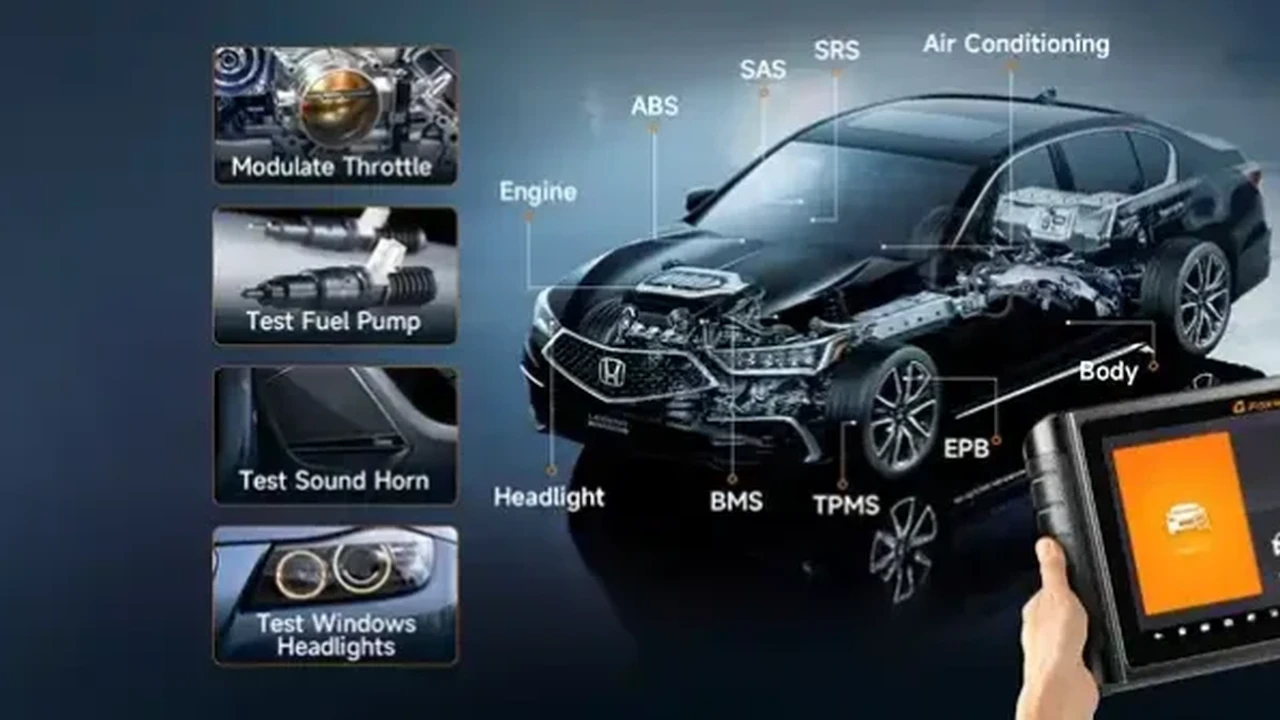Smart EV Chargers: Features and Benefits for Connected Charging
Smart EV chargers offer advanced features and benefits for connected charging. Learn about remote monitoring, scheduling, and energy management. Discover how smart chargers can optimize your charging experience and save you money.

Understanding Smart EV Chargers for Efficient Home Charging
So, you're thinking about getting a smart EV charger, huh? Great choice! These aren't your grandpa's wall outlets. Smart chargers are packed with features that can seriously upgrade your EV charging game. Think of it as moving from a basic phone to a smartphone – same core function, but a whole lot more power and convenience.
What exactly *is* a smart EV charger? Simply put, it's a charger that connects to the internet, usually via Wi-Fi. This connection unlocks a world of possibilities, allowing you to control and monitor your charging from your phone or computer. Let's dive into some of the key features.
Remote Monitoring EV Charger Status and Energy Usage
Imagine being able to check your charging status from anywhere. Stuck at work and wondering if your car is fully charged? No problem! Smart chargers let you see real-time charging data, including current charging speed, energy consumption, and estimated time to completion. This is a game-changer for planning your day and ensuring your EV is always ready to go. No more range anxiety!
Plus, many smart chargers provide detailed energy usage reports. You can track how much electricity you're using to charge your EV, which is super helpful for budgeting and identifying opportunities to save money. Think of it as your personal EV charging dashboard.
Scheduling EV Charging for Off-Peak Hours and Cost Savings
One of the biggest benefits of smart chargers is the ability to schedule charging sessions. Why is this important? Well, many utility companies offer lower electricity rates during off-peak hours, typically overnight. With a smart charger, you can set your charging to automatically start when rates are lowest, saving you a significant amount of money over time. It's like getting a discount on every "fill-up."
You can customize your charging schedule to fit your lifestyle. For example, you can set it to charge only on weekends, or only when your solar panels are generating excess energy. The flexibility is amazing.
Energy Management EV Charging Load Balancing and Prioritization
If you have multiple EVs or other high-power appliances in your home, energy management becomes crucial. Smart chargers can help you balance the load on your electrical system, preventing overloads and ensuring everyone gets their fair share of power. This is especially important if you live in an older home with a limited electrical capacity.
Some smart chargers even allow you to prioritize charging for certain vehicles. For example, you might want to prioritize charging your primary vehicle for your daily commute, while charging your secondary vehicle at a slower rate. This level of control gives you peace of mind and ensures your most important needs are met.
Product Recommendations Smart EV Chargers for Every Need
Alright, let's talk specifics. Here are a few smart EV chargers I recommend, based on different needs and budgets:
Wallbox Pulsar Plus Level 2 EV Charger Review
Best Overall: The Wallbox Pulsar Plus is a top-rated smart charger known for its reliability, compact design, and user-friendly app. It offers a maximum charging speed of up to 48 amps (11.5 kW), which is plenty for most EVs. The app allows you to monitor charging status, schedule charging sessions, and track energy usage. It also integrates with smart home systems like Alexa and Google Assistant. Pros: Compact, reliable, feature-rich app, smart home integration. Cons: Can be a bit pricey compared to some other options. Typical Price: $600 - $700
Use Case: Ideal for homeowners who want a reliable, feature-rich smart charger for everyday use. The compact design makes it a good choice for garages with limited space.
JuiceBox 40 Smart EV Charger Value Choice
Best Value: The JuiceBox 40 is a popular smart charger that offers a great balance of features and price. It provides a maximum charging speed of up to 40 amps (9.6 kW) and comes with a user-friendly app for monitoring and scheduling. It also supports energy management features, allowing you to balance the load with other appliances. Pros: Affordable, reliable, good feature set, energy management capabilities. Cons: App is not as polished as some other options. Typical Price: $500 - $600
Use Case: A great option for budget-conscious EV owners who still want a smart charger with essential features.
Tesla Wall Connector Smart Charging for Tesla Vehicles
Best for Tesla Owners: If you own a Tesla, the Tesla Wall Connector is a natural choice. It offers seamless integration with your Tesla vehicle and provides a maximum charging speed of up to 48 amps (11.5 kW). It also features a sleek design and a long charging cable. Pros: Seamless Tesla integration, high charging speed, sleek design. Cons: Only compatible with Tesla vehicles, relatively expensive. Typical Price: $550 - $650
Use Case: The obvious choice for Tesla owners who want the best possible charging experience.
Grizzl-E Smart EV Charger Rugged and Reliable
Best for Outdoor Use: The Grizzl-E Smart is known for its rugged construction and ability to withstand harsh weather conditions. It's a great choice for outdoor installations. It offers a maximum charging speed of up to 40 amps (9.6 kW) and comes with a durable enclosure. While it requires a separate purchase of a wifi dongle for "smart" features, its reliability makes it a strong contender. Pros: Rugged and durable, weatherproof, reliable performance. Cons: Requires additional purchase for smart features, basic design. Typical Price: $400 - $500 (plus cost of wifi dongle if required)
Use Case: Ideal for EV owners who need a charger that can withstand the elements or who prioritize reliability over advanced features.
Comparing Smart EV Charger Features and Specifications
Choosing the right smart EV charger can be overwhelming. Here's a quick comparison of the key features to consider:
- Charging Speed: Measured in amps (A) or kilowatts (kW). Higher amperage means faster charging. Consider the charging capacity of your EV and your daily driving needs.
- Connectivity: Wi-Fi is the most common, but some chargers also offer Bluetooth or Ethernet connectivity.
- App Features: Look for an app that allows you to monitor charging status, schedule charging sessions, track energy usage, and control charging settings.
- Energy Management: If you have multiple EVs or other high-power appliances, consider a charger with energy management features.
- Safety Features: Look for chargers with safety certifications like UL or ETL.
- Warranty: A longer warranty provides peace of mind.
- Price: Smart chargers range in price from around $400 to $700 or more.
Smart EV Charger Installation Considerations and Costs
Installing a smart EV charger typically requires hiring a qualified electrician. The cost of installation can vary depending on several factors, including:
- Your home's electrical system: Older homes may require electrical upgrades to support a Level 2 charger.
- The distance between the charger and your electrical panel: Longer distances require more wiring, which increases the cost.
- Permits and inspections: Some cities and states require permits and inspections for EV charger installations.
Expect to pay anywhere from $500 to $1500 or more for professional installation. It's always a good idea to get multiple quotes from different electricians to compare prices.
Maximizing Your Savings with Smart EV Chargers and Time-of-Use Rates
The real magic of smart EV chargers happens when you combine them with time-of-use (TOU) electricity rates. TOU rates charge you different prices for electricity depending on the time of day. By scheduling your charging sessions to coincide with the lowest rates, you can significantly reduce your charging costs.
Contact your utility company to find out if they offer TOU rates and how to enroll. Many utilities also offer rebates or incentives for installing smart EV chargers, so be sure to check those out as well.
Future of EV Charging Wireless and Inductive Charging Technologies
The future of EV charging is looking pretty exciting! One of the most promising technologies is wireless or inductive charging. Imagine simply parking your EV over a charging pad and it automatically starts charging – no cables required! Wireless charging is still in its early stages, but it has the potential to revolutionize the EV charging experience.
Another exciting development is vehicle-to-grid (V2G) technology. V2G allows EVs to not only draw power from the grid but also send power back to the grid. This could help stabilize the grid and provide backup power during outages. While V2G is still a few years away from widespread adoption, it has the potential to transform EVs into mobile energy storage units.
:max_bytes(150000):strip_icc()/277019-baked-pork-chops-with-cream-of-mushroom-soup-DDMFS-beauty-4x3-BG-7505-5762b731cf30447d9cbbbbbf387beafa.jpg)






